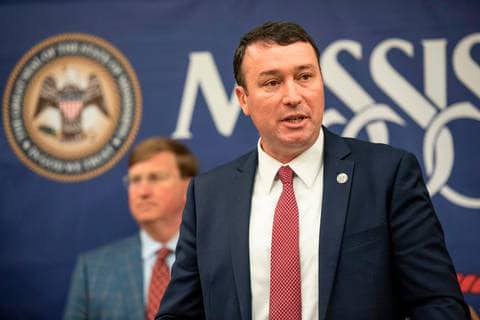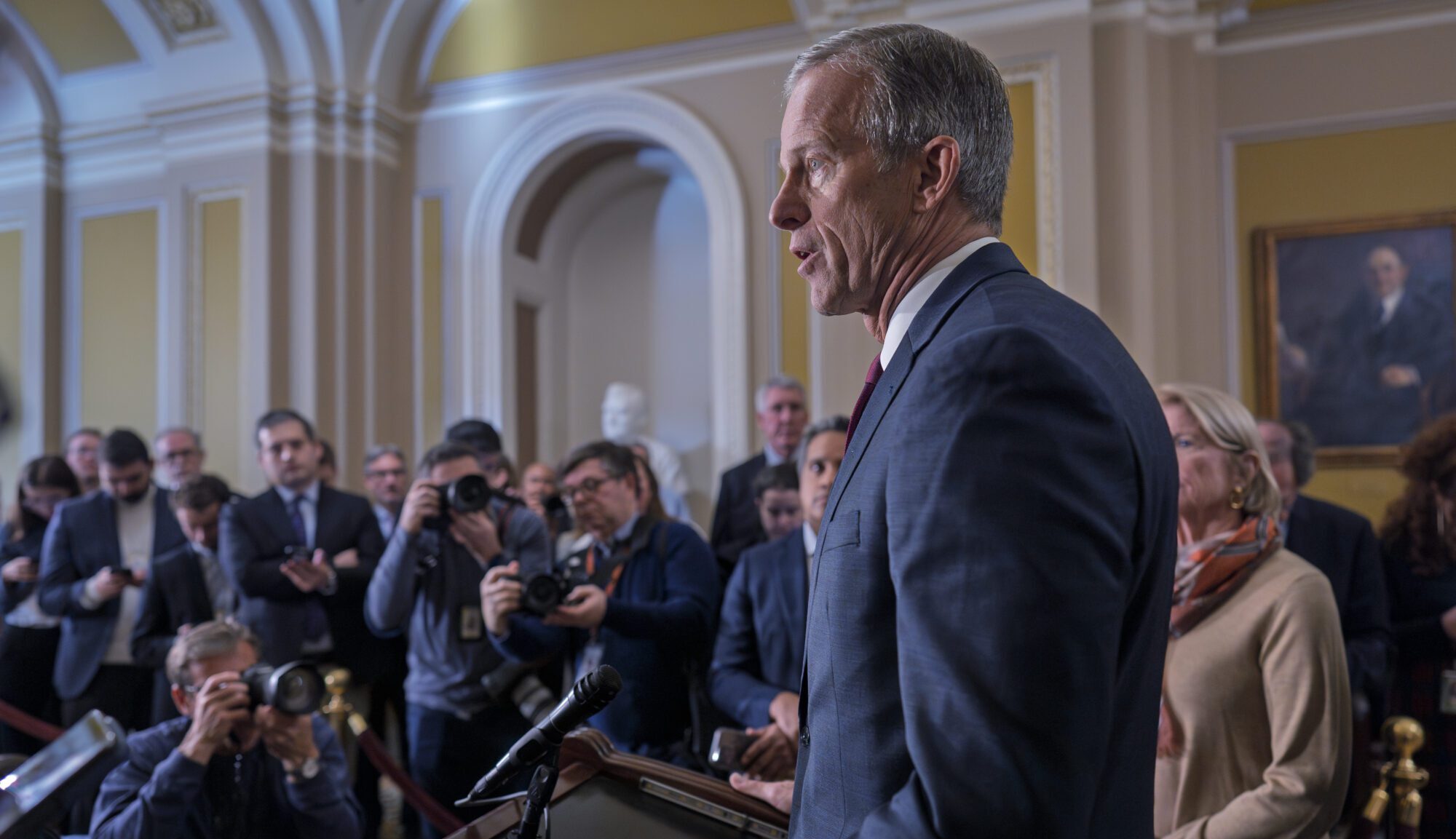
L to R: Speaker Jason White and Lt. Governor Delbert Hosemann (Photos by Jeremy Pittari | Magnolia Tribune)
- Education, PERS and streamlining state government top the priority list for the legislative leaders.
Next year’s legislative session could see several bills aimed at continuing the “Mississippi Miracle” in public education as well as streamlining state government, House and Senate leaders said late last week.
House Priorities
Speaker Jason White (R) said during a press conference Friday that the House will create a study committee to explore school choice legislation. The newly formed committee will conduct hearings this summer and into the fall to gather input from Mississippians on the issue.
“Students and parents should have a say in their education,” White said, adding the conversations will be “uncomfortable.”
White noted that surrounding states have open enrollment, but it could be a challenge to gain support for the idea among Mississippi lawmakers.
“Do we have the votes to go that far? I don’t know that. But it’s time we have a real conversation about what is best for kids and parents and not the status quo or what might upset somebody somewhere,” White said.
During the regular legislative session, White and several Republican House members supported legislation giving students and parents the option for pupils in D- and F-rated schools to transfer to another school. However, the bill died before the deadline.
Additionally, the House passed a bill that would have allowed public school students to transfer to another public school outside their home district. That legislation died in a Senate committee.
In related education legislation, Speaker White said he would like to see a “Tim Tebow-type” bill for Mississippi pass next session. This would allow homeschoolers to participate in public school activities, such as athletic programs. The bill passed the House this year but died in the Senate. White said allowing homeschoolers to participate is only fair, as their “parents also pay taxes.”
Another of White’s priorities is improving the capital city. The Speaker said one area he wants to focus on is JXN Water, the utility that runs the city’s water system and has been under federal oversight since 2022 when a water plant stopped functioning, leaving the city without water for several days.
Senate Priorities
Over in the Senate, chamber leader Lt. Governor Delbert Hosemann (R) favors bringing retired teachers back into the classroom. He said the state is experiencing a teacher shortage and bringing back former educators could be one solution.
Hosemann noted that Mississippi is losing teachers to neighboring states.
A recent report from the National Education Association, the largest labor union in the U.S. representing teachers, showed Mississippi has dropped from 48th in the nation in average teacher pay to 51st. It showed Mississippi as 51st in average teacher salary at $53,704 and 40th in average teacher starting salary at $42,492.
In neighboring Louisiana, the report showed the average starting salary is more than $46,682, and the average salary is nearly $55,911. Meanwhile, in Alabama, the average salary is $61,912 with an average starting teacher salary of $44,610.
Hosemann did not give an estimate of how much possible teacher pay increases would cost or where offsets would come from should lawmakers pursue another round of pay increases for educators next session.
He did say attracting qualified teachers is necessary to continue the “Mississippi Miracle,” which has seen test scores outpace regional and national averages.
“Without an educated workforce, Mississippi’s momentum will not continue,” Hosemann said at his press conference Friday.
Another item on his legislative agenda is streamlining state government. However, Hosemann added, “citizens must have access to [state] government.”
There are 17 state agencies with fewer than 10 employees, he said, noting that Texas and Arkansas successfully completed a “DOGE-style” restructuring at the state level. An example he gave was that Texas combined all the state’s professional licensing offices into one.
Both leaders said the state employees’ retirement system, PERS, must continue to be addressed during the next legislative session. Efforts were made in both chambers this session to address components of PERS aimed at its sustainability. Part of the tax cut legislation lawmakers passed this session added a new tier for incoming hires. The House effort to provide additional funding for PERS did not survive the process but could be readdressed when the Legislature gavels back in come January 2026.










